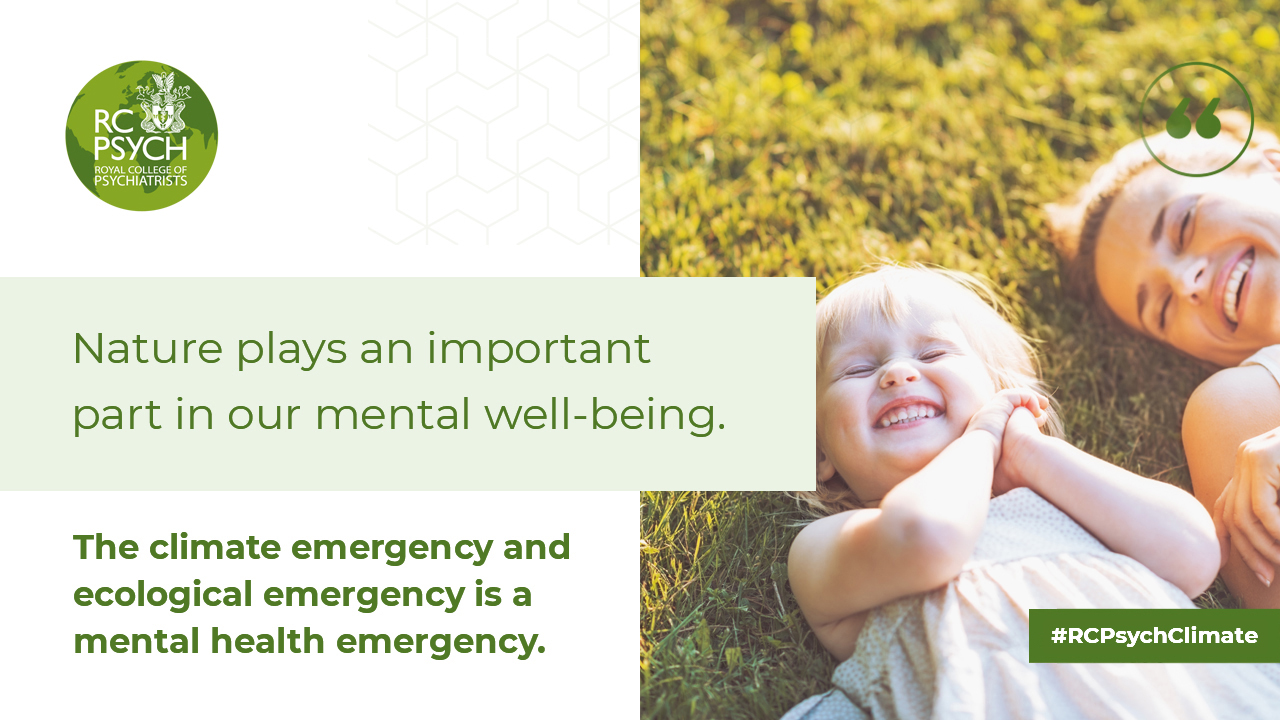Why is sustainability important?

Discover the links between the climate emergency and mental health.
Understanding the importance of sustainability and the relevance of the climate emergency to mental health is of vital importance to fostering the desire to initiate change in all of us.
For us to feel empowered and motivated to change, we need a shared understanding of why it is so important for our patients and our work.
We appreciate that everyone is coming to this topic from different levels of knowledge and understanding, and we want to encourage the development of this awareness.
Climate change is making existing mental health problems worse, causing psychological distress and leading to more people experiencing mental illness.
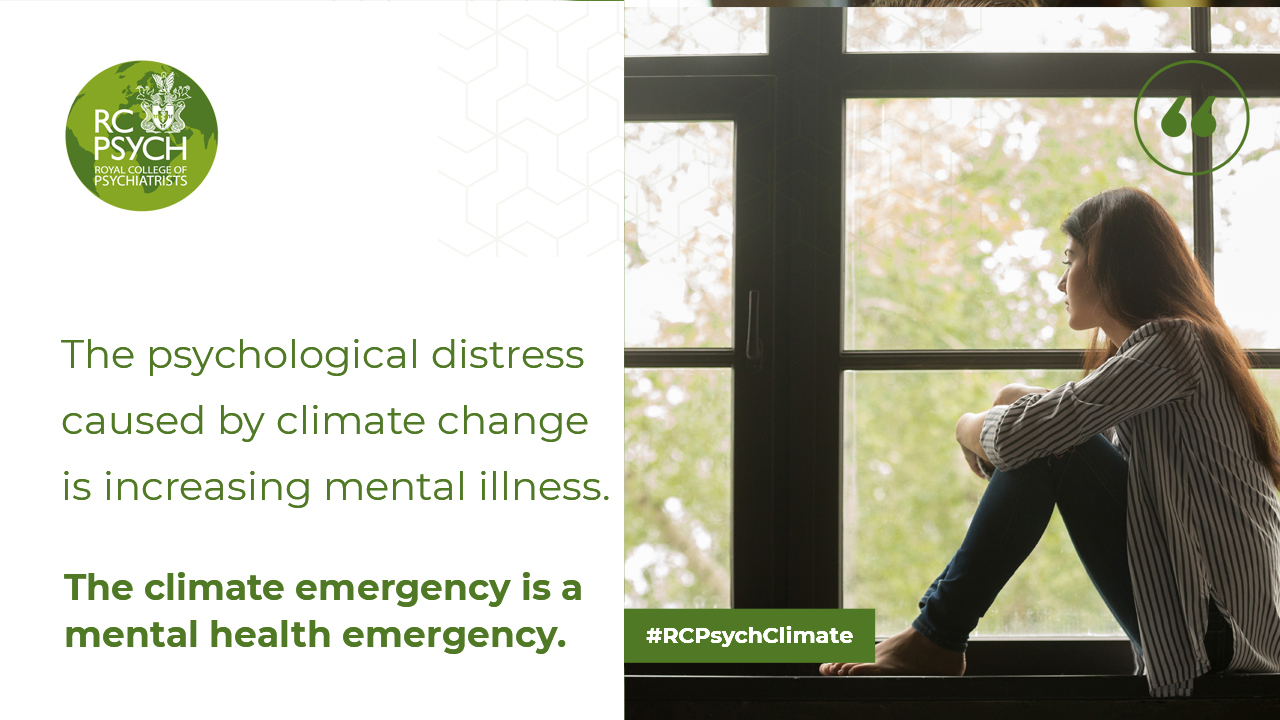
Children and young people are experiencing eco-distress as a result of what they’re reading and hearing about climate change. They will bear the greatest effects, and for some, it is affecting their mental health.
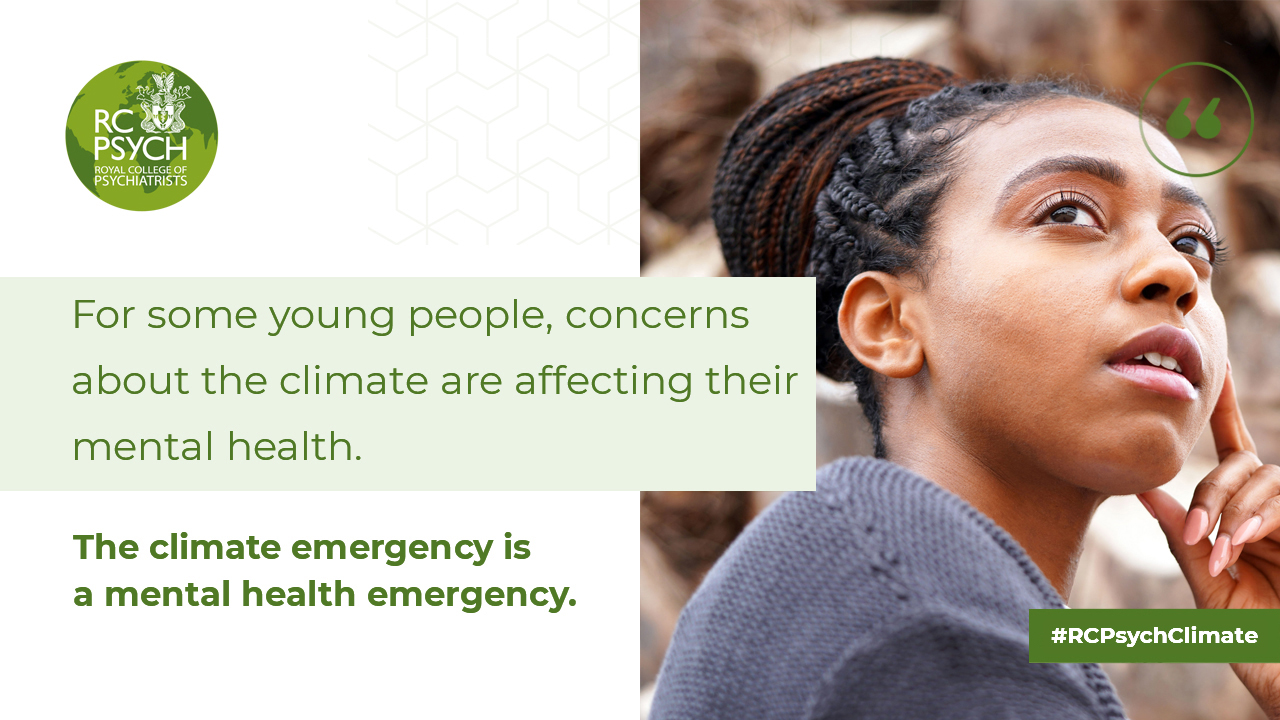
Flooding is the most common extreme weather event in the UK. Floods are more frequent and damaging than ever due to climate change and have been shown to have a major impact on mental health, with flood victims experiencing PTSD, depression and anxiety.
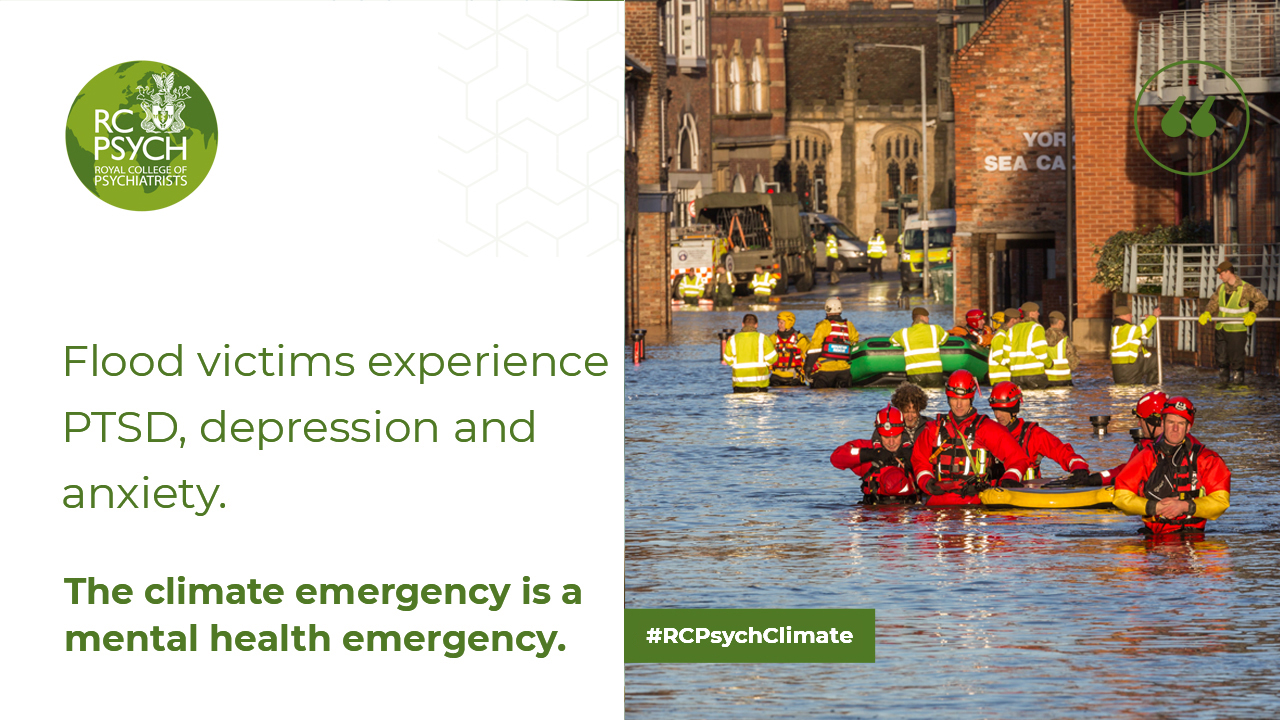
Long term air pollution has been linked with depression and anxiety. Research has also found a possible link with dementia and higher rates of suicide.
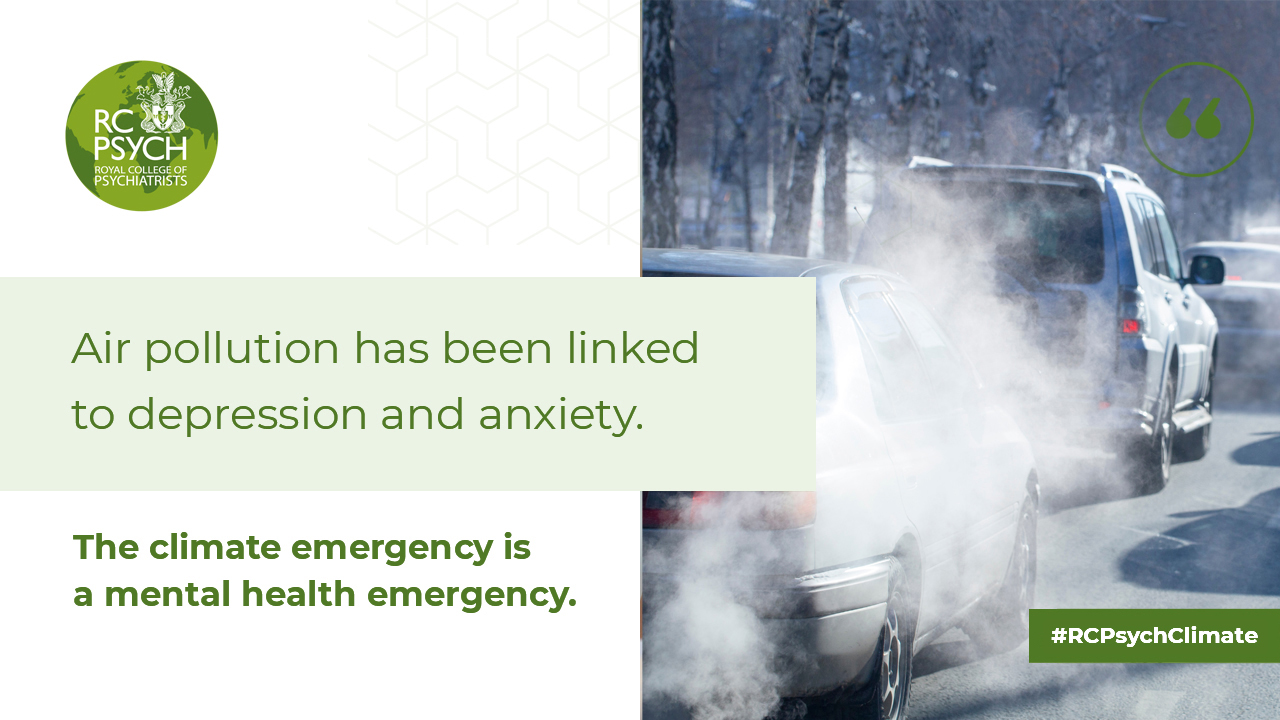
Climate change’s impact on weather conditions is causing food insecurity. 135m people globally experience food security, causing psychological distress and mental and physical illness.
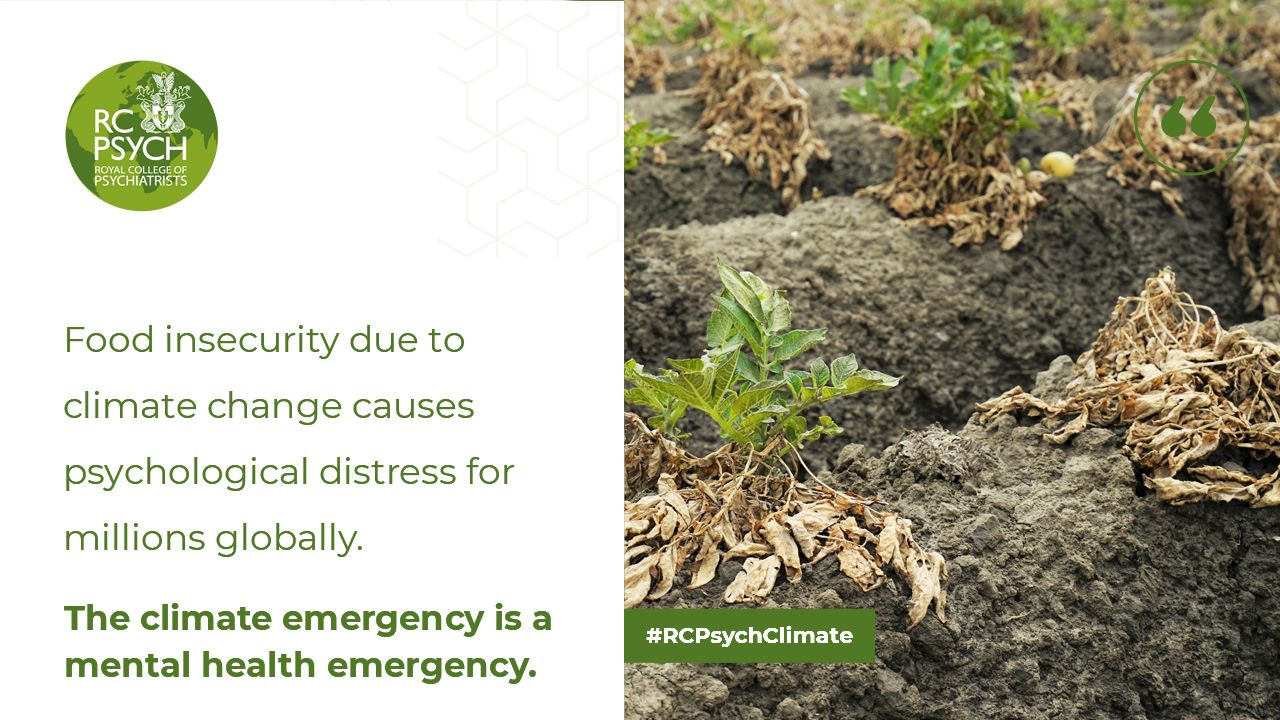
Higher temperatures and heatwaves which are more frequent and severe as a result of climate change – have been shown to be linked with higher levels of mental illness and higher suicide rates.
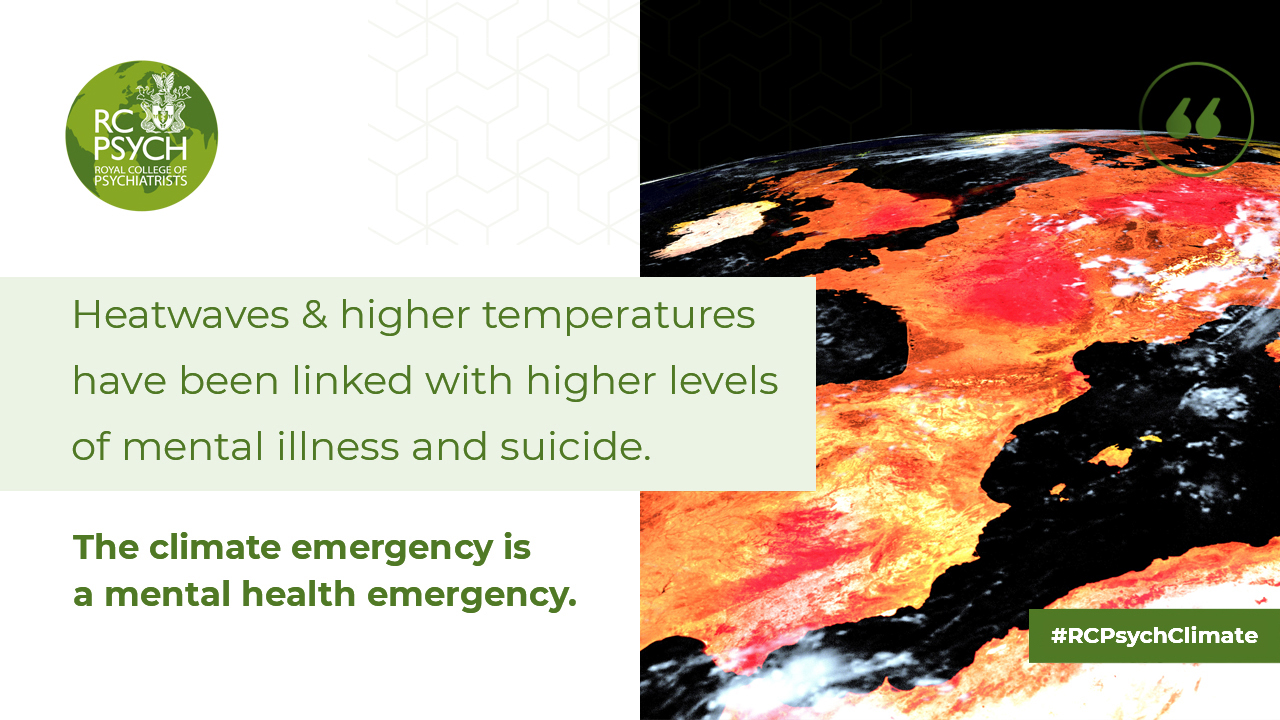
Droughts – which are more frequent and severe as a result of climate change – cause mental health problems with women, young people, the elderly and the poor among those worst affected.
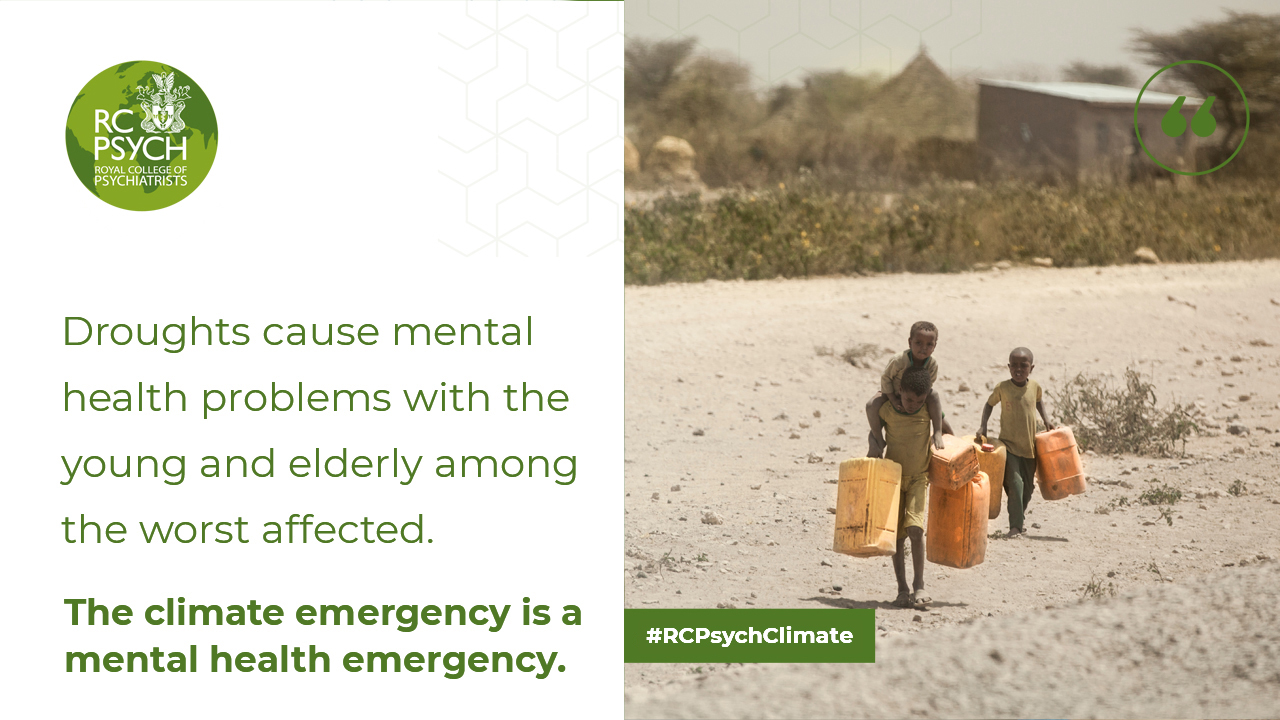
The vulnerable are worst affected by climate change, in terms of their physical and mental health. Climate change is an issue those of us working in mental health – and the world – needs to treat as an emergency.
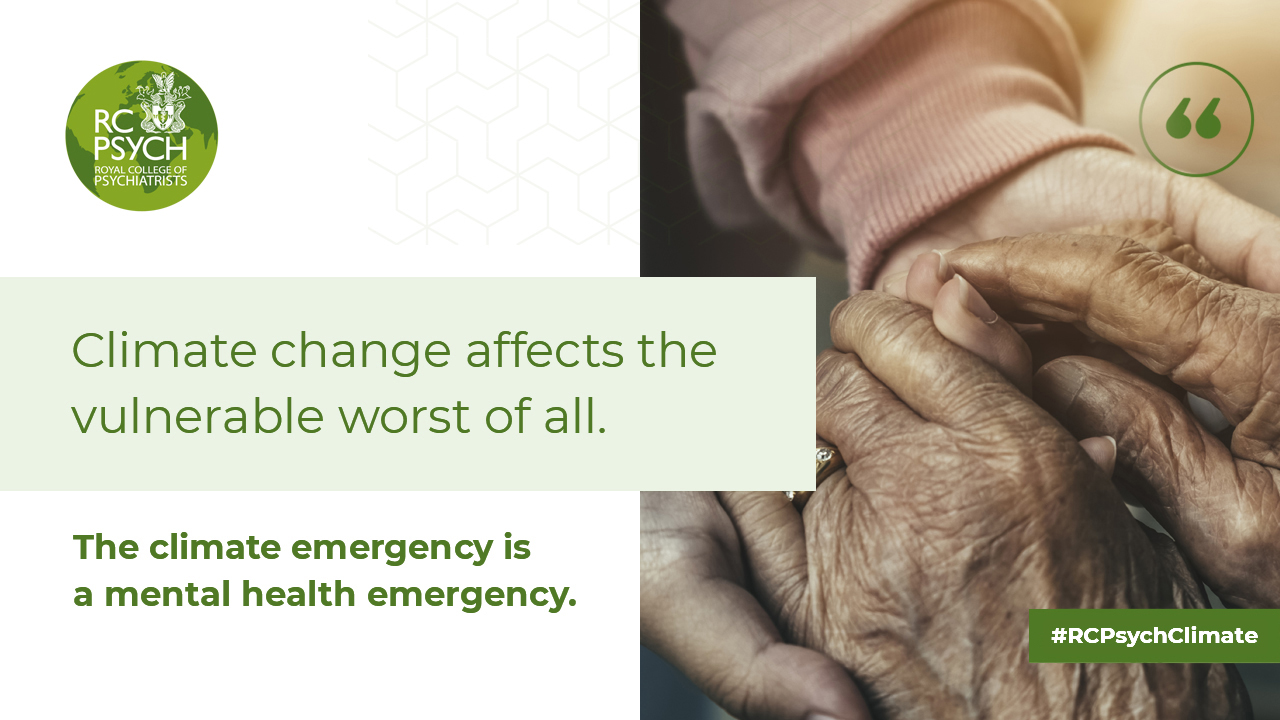
Extreme weather conditions are more frequent and severe due to human-induced climate change – the job losses and disruption to lives which follows goes hand in hand with an more mental health problems on a global scale.
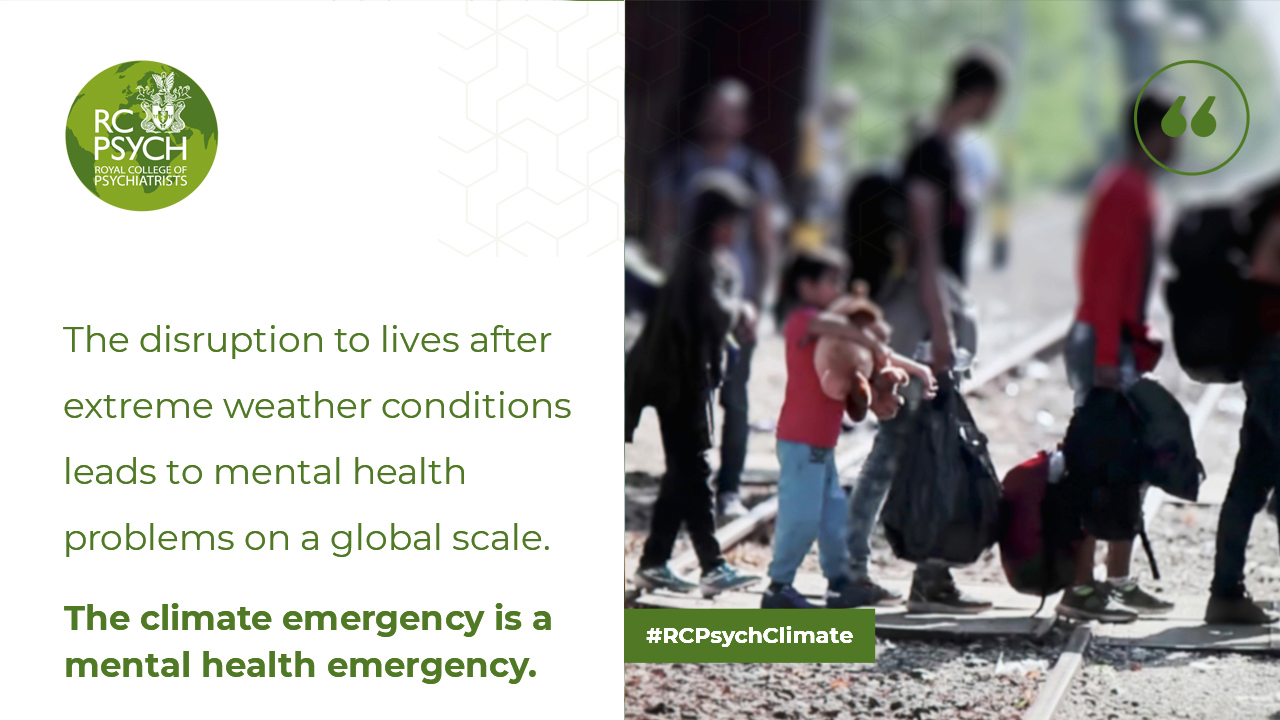
A quarter of species of plants and animals are under threat due to climate change. Nature plays an important part in our wellbeing and healthy natural environments are important for our mental health.
